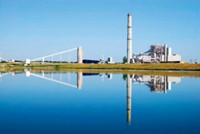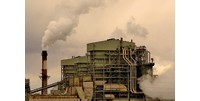Advertisement
Grab your lab coat. Let's get started
Welcome!
Welcome!
Create an account below to get 6 C&EN articles per month, receive newsletters and more - all free.
It seems this is your first time logging in online. Please enter the following information to continue.
As an ACS member you automatically get access to this site. All we need is few more details to create your reading experience.
Not you? Sign in with a different account.
Not you? Sign in with a different account.
ERROR 1
ERROR 1
ERROR 2
ERROR 2
ERROR 2
ERROR 2
ERROR 2
Password and Confirm password must match.
If you have an ACS member number, please enter it here so we can link this account to your membership. (optional)
ERROR 2
ACS values your privacy. By submitting your information, you are gaining access to C&EN and subscribing to our weekly newsletter. We use the information you provide to make your reading experience better, and we will never sell your data to third party members.
Environment
'Clear Skies' a Dirtier Policy
NRC says President's plan unlikely to cut emissions as much as current law
by Cheryl Hogue
January 24, 2005
| A version of this story appeared in
Volume 83, Issue 4
AIR POLLUTION
President George W. Bush's plan to reduce air pollution would likely curb emissions less than current law does, an interim report by the National Research Council (NRC) says.
The report, released on Jan. 14, scrutinizes a part of the Clean Air Act that requires industry to install modern pollution controls when plants built before 1970 make renovations that increase emissions. That section of the law, called new source review (NSR), applies to chemical plants, utilities, and other industrial facilities.
NRC also examines Bush's proposed Clear Skies program, which is a cap-and-trade program for reducing sulfur dioxide, nitrogen oxides, and mercury emissions at coal-fired power plants. The report says it is "unlikely that Clear Skies would result in emission limits at individual sources that are tighter than those achieved when NSR is triggered at the same sources.
"In general, NSR provides more stringent emission limits" for industrial air pollution than do other programs, including the Bush initiative, it adds.
The report comes as the Senate Environment & Public Works Committee plans hearings in coming weeks on legislation to implement the Clear Skies program. In case the bill runs into political roadblocks, EPA recently proposed parts of the President's initiative as a regulation. Also, EPA is under a court deadline to issue a regulation in March to control mercury emissions from power plants. The Clear Skies bill would replace that rule.
The Bush Administration opposes NSR, and has not aggressively enforced NSR regulations, but many states are stepping into the void left by federal inaction. New York last week announced settlement agreements with two major utilities in the state to slash SO2 and NOx from coal-fired power plants.
NRC's final report is expected in late 2005.




Join the conversation
Contact the reporter
Submit a Letter to the Editor for publication
Engage with us on Twitter